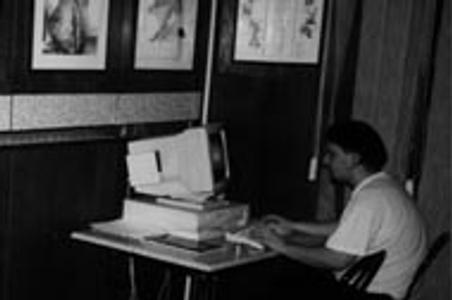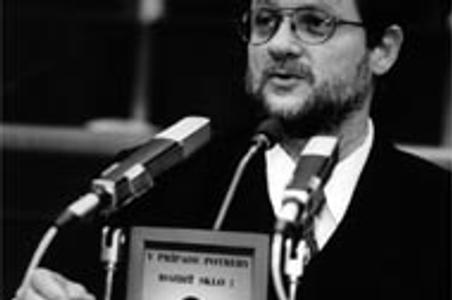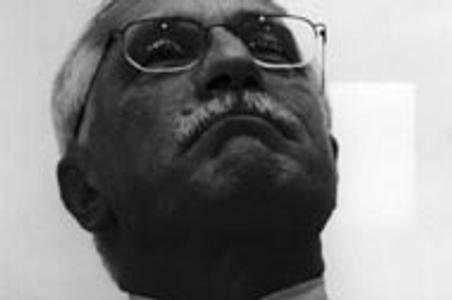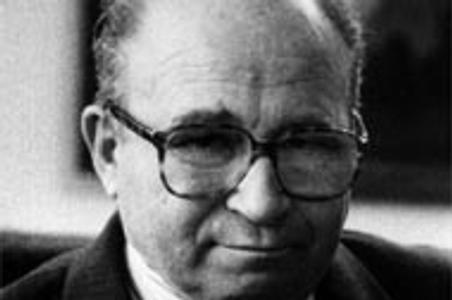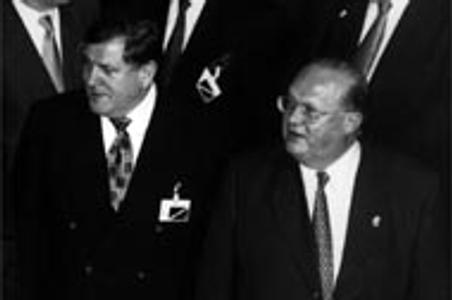Archive of articles - December 1997, page 2
If you desire to read an old article, use the search bar or select the publication date.
Ruling coalition slumps in poll
Both Prime Minister Vladimír Mečiar's Movement for a Democratic Slovakia (HZDS) and the government administration led by the HZDS lost more ground to the newly-formed Slovak Democratic Coalition (SDK) in November, according to an opinion poll released on December 3 by the independent MVK agency.The poll showed that support for the HZDS dropped to 20.5 percent from 26.1 percent in October, while SDK preferences stayed almost unchanged at 32.4 percent. Due to the HZDS slump, overall support for the coalition government parties has also slipped to 30.5 percent from 36.2 percent in October.Even worse for the current ruling coalition, one of Mečiar's partners, the Association of Slovak Workers (ZRS) would, at its current level of support, fail to gain any representation at all in the 150 seat assembly if elections were held today, burying for the time being Mečiar's hopes of retaining power under the same coalition structure in the general elections scheduled for September 1998.
Slovakia wants German compensation for war victims
Slovakia urged Germany on December 1 to pay compensation to Slovak victims of the Holocaust, saying it hoped a coming conference in London would speed up the process."[Slovakia] draws attention to the fact that [Germany] has so far not compensated either Slovak victims of the Holocaust or other forms of Nazi persecution," the Foreign Ministry said in a statement.The ministry said it welcomed an international conference organized by the British government in London in December on gold stolen by the Nazi German regime during World War II. "The ministry believes the London conference... will contribute to speeding up the [process of] compensating victims of Nazism who have so far been overlooked," the statement said.
Slovaks praise Klaus, expect instability
In Slovakia, two basic reactions to the Czech turmoil prevailed - praise for Klaus, which was based on various political motives, and anxiety regarding instability.While claiming that it was not in danger of a similar funding scandal, Vladimír Mečiar's Movement for a Democratic Slovakia (HZDS) praised the qualities of Klaus, who with Mečiar had been jointly responsible for splitting the former Czechoslovakia. "The HZDS has always recognised Klaus's pragmatic approach, his openness and willingness to cooperate," the HZDS statement read.Most opposition politicians praised Klaus for his decision to resign in the face of financial scandal surrounding his party. "The positive side of this [resignation] is that [the Czech government] set a moral limit for politics," said Ján Čarnogurský, leader of the Christian Democratic Movement (KDH).
Bratislava turns Cyber-Java: The Spectator rates Bratislava's cybercafés
Centuries ago, coffee took the world by storm. In the past decade, the Internet has done the same. It is little wonder, then, that these two mass phenomena joined together in the latest of internet spin-offs - the cybercafé.A cybercafé, or internet café, is a place where one can drop in for a cup of coffee, perhaps a good smoke, then deal with business or private e-mail correspondence, and just before taking off for home, surf the web for fun or chat with people halfway across the planet.Over the past few years, cybercafés have become hot spots in most western cities. Slovakia has not lagged behind in this development. The first Internet café opened up in Košice [WHEN?], and was quickly followed up in the capital.
Slovnaft sends SAX on wild ride
While most Slovak blue chips were quite inert on the Bratislava Stock Exchange (BSE) on December 8, massive gains in the share price of oil refiner Slovnaft pushed the entire SAX index up 3.22 points to close at 175.61.Slovnaft gained 6.7 percent on its average price, closing 49 crowns up at 1,001, just above its nominal share value of 1,000 Sk.Trading only 691 shares on the BSE floor, Slovnaft dominated direct trading, as more than 500,000 shares changed hands in several tranches at prices ranging from 910 to 1,196 crowns. Due to the Slovnaft madness, the overall BSE volume soared to 1,584,168 shares, a huge jump from the 455,610 shares traded on December 5, while turnover boomed to 1.397 billion crowns from 308.41 million on December 5.
1998 state budget passed amid array of objections
Speaking in parliament minutes after the passage of his fiercely-contested 1998 budget proposal, Finance Minister Sergej Kozlík was visibly triumphant. Grinning hugely and flashing a jubilant thumbs-up sign to applauding coalition deputies, Kozlík declared that the budget meant a "happy new year" for the country, and praised the opposition for the "high level of culture" it had shown during parliamentary debate over the measure.Opposition deputies responded by jeering at him and declining his invitation to join the government in a glass of champagne. But Kozlík certainly had reason to celebrate. His 1998 budget proposal has had the roughest passage through parliament of any budget in the last four years, and has left a mood of internal division hanging over the governing coalition. In the end, however, Kozlík was able to patch together enough votes to force the budget through without major concessions to either his coalition partners or the opposition.
Other Cities Bidding for the 2006 Winter Olympics
Each country can submit only one city as their bid. Bid applications are due December 15. The International Olympic Committee (IOC) will narrow the number of candidates down to four or five in March, 1998.Sion, Switzerland- The front runner. Most organized of all the cities. Most advanced city and strong contacts with International Olympic committee which is located in Lausanne, Switzerland. Results of Olympic Voting: Voter turn-out - 66%, In favor - 83%.Klagenfurt, Austria- There has been talk of cooperation between Slovenia and Italy in the Alps. Would be a disadvantage to spread out Olympic events. Picturesque city in the mountains with high-class facilities. Results of Olympic Voting: NA
Klaus's Titanic sinks, but captain refuses to leave party
When Czech Prime Minister Václav Klaus submitted his resignation in the early morning of November 30, he was not only the captain of a sinking cabinet ship that had been left crewless, but was facing growing funding scandals on his own watch about which he could ill pretend to be clueless. It is little wonder then that before jumping overboard, his own partymates called on him to jump first. Klaus heard them but, as every proud captain, was the last to abandon ship.His departure not only marks the end of his eight-year career as the country's capitalist helmsman, but threatens the very viability of the right-wing forces that have steered the course for the Czech Republic during its entire post-communist existence.Following in the footsteps of his political idol Margaret Thatcher, Klaus was pushed out by members of his own party, the Civic Democratic Party (ODS), amid accusations that he had known about millions of crowns in illegal party contributions.
Supreme Court chief justice resigns
One day after a controversial ruling by the Supreme Court, the court's Chief Justice, Milan Karabín, sent a letter of resignation to Ivan Gašparovič, Speaker of the Slovak Parliament. Citing "health reasons," Karabín left the Supreme Court looking for new leadership, with the term of the Deputy Chief Justice, Ivan Majerík, set to expire at the end of December 1997.Karabín's decision touched off a powder train of speculation regarding political manipulation of the country's judicial system. Highly respected legal experts and opposition politicians have said that Karabín's resignation was a direct consequence of the candidacy of Jozef Štefanko, Chairman of the Civil Law Collegium, and Štefan Lehoťák, Supreme Court Senate Leader, for the post of Deputy Chief Justice. Both judges have a long record of openly supporting the current ruling coalition in their verdicts.
Two types of Slovaks divide country
There is no doubt that the present-day political and social situation in this country is a source of deep frustration and pessimism as Slovakia slides into ever-increasing internal conflict. What is causing this?The opposition believes that it is a struggle between a better educated, pro-Western, more open and democratic part of society and a less educated, more nationalistic, xenophobic and backward element. However, supporters of the ruling coalition believe that they represent a positive force which stands for Slovakia's interests, and which bravely and quite successfully have protected the country from a number of enemies both at home and abroad.At the beginning of the century Central Slovakia was the only ethnically homogeneous area in Slovakia, contrasting with the fringes of the country which had relatively mixed populations. This began to change after 1918, when the Central Slovak dialect was gradually introduced as the standard language. Today, virtually everybody in the country can speak the standard language.
Martin: Sleepy village turned bustling city makes an adequate base for ski trips
Once upon a time there was a town called Turčianský Svätý Martin. Ringed by the craggy peaks of the Veľká (Big) and Malá (Little) Fatra, the town sat in the middle of a wide, flat basin split by the Turiec River. Legend said that Prince Turan created the valley when he drained a lake in pursuit of the beautiful water nymph who lived at the bottom.The final fate of the nymph has been lost to history, but Turčianský Svätý Martin - now just Martin - has not. It remained a sleepy regional center until 1861, when a group of intellectuals drafted Slovakia's first declaration of independence, the Martin Memorandum. Two years later, the Martiners founded Matica Slovenská, the Slovak cultural institution, solidifying the town's reputation as the heart of Slovak nationalist hopes.The memorandum didn't make much of a name for Slovakia, but it propelled the town, now a bustling city of 58,000, into the modern era.
Slovakia clings to dream of hosting Olympics
The Slovak Spectator's Daniel Stoll had a question and answer session with Ján Smerek, the Chairman of Slovakia's 2006 Winter Olympics bid.The Slovak Spectator: Where did your conviction arise, that Slovakia should organise a bid for the 2006 Winter Olympics?Ján Smerek: "It is not just my passion, it comes from the people as well - from their minds, their hard work, their intentions, abilities and their traditional Slovak kindheartedness. These are our greatest assets. We have demonstrated more than once our ability to organize successfully the world's biggest sporting events in the Vysoké Tatry. It is our greatest chance to gain exposure for Slovakia, to prove that even a small and young country can put on a big show for the world."
Slovakia shunted off EU fast track
LUXEMBOURG- The heads of state and government at the Luxembourg bi-annual European Union (EU) summit issued a Solomon's verdict regarding EU enlargement, deciding that next March the club will officially open negotiations on entry with all 11 applicants, but as soon as April 1998 will open "detailed talks" with only six of the best-prepared candidates.In practice this means that Slovak Prime Minister Vladimír Mečiar will appear in March on the same platform as the EU front-runners during an official joint photo-op, but then will be firmly shown on to a local train, while the five-plus-one chosen join EU leaders in the comfy compartments of the EU fast-track express.EU leaders agreed to let in Hungary, Poland, the Czech Republic, Estonia, Slovenia and Cyprus, dubbed as the "five plus one" scenario, while telling five other ex-Soviet satellites, including Slovakia, that they too could begin the long road to EU membership, though at a slower pace.
5 fearless and 5 foolish predictions for 1998
The Slovak Spectator would like to offer readers a short list of things that we think will happen next year, and with tongue firmly in cheek, a second list of silly news headlines that they probably won't see in 1998.
What to look for in 1998
As 1997 comes to a close and we look forward to 1998, it's time to take stock of the past year and see what it forecasts for the year ahead. Progress was made on several fronts this year: Bratislava Old Town's vividness has been resurrected through renovations, VÚB launched the nation's first mortgage program, and ground was broken on a new 34-floor National Bank of Slovakia building, to mention a few. However, much of what was started in the past 12 months will not be completed until next year. And with elections looming next autumn, many decisions may have to wait until we see what Slovakia's prospects look like 12 months from now. In any case, we offer 10 predictions for what to expect on the real estate development scene in 1998.
Lashing out against press, Mečiar fires both spokeswomen
Prime Minister Vladimír Mečiar on December 3 canceled the government's regular press conferences, along with all other government press events, in an attempt to teach journalists a lesson."Due to the very low cultural level of some Slovak journalists and a low professional response in some media, I... am canceling press conferences following government sessions," read Mečiar's announcement, which was carried by TASR.The next day, all major Slovak dailies except the pro-government Slovenská Republika denounced the ban as "disrespectful towards citizens," and "mindless revenge." Adding insult to injury, Magda Pospíšilová, Mečiar's spokeswoman, and Ľudmila Buláková, the government spokeswoman, were both put out of a job effective December 5. Both spokespersons refused to comment on their dismissals in any way.
- Slovak female triathlete shatters barriers with historic win at Himalayan event
- No more photos or bank statements? Slovakia moves to ease residence process
- Top 10 events in Bratislava for foreigners
- Convicted of multiple murders, Slovakia’s mafia boss seeks release from prison
- Slovakia loses another EV model to Spain as Stellantis chooses Zaragoza over Trnava
- UK appoints Bilal Zahid as new ambassador to Slovakia
- News digest: Violent gang in Bratislava is under arrest
- Kyogen speaks to Slovaks
- Top 10 events in Bratislava for foreigners
- No more photos or bank statements? Slovakia moves to ease residence process
- Weekend: Celebration of fun comes to Malacky Photo
- Slovakia loses another EV model to Spain as Stellantis chooses Zaragoza over Trnava
- News digest: Prosecutor seeks jail for NBS Governor Kažimír as his political support wanes
- Slovak female triathlete shatters barriers with historic win at Himalayan event
- Convicted of multiple murders, Slovakia’s mafia boss seeks release from prison
- 3 free things to do in Bratislava in the next seven days
- Maria Theresa on the banks of Bratislava
- No more photos or bank statements? Slovakia moves to ease residence process
- 3 free things to do in Bratislava in the next seven days
- Weekend: Celebration of fun comes to Malacky Photo
- Top 10 events in Bratislava for foreigners
- Digital Jarvis is real now. He is coming for your to-do list
- The Kremlin’s security agency has a Russian contractor in Slovakia - no one has noticed
- The disinformation scene has become a tool of media capture
- Maria Theresa on the banks of Bratislava
- No more photos or bank statements? Slovakia moves to ease residence process
- A mayor resigns over €2.7 million fraud scandal at town hall
- He designed Gatwick. But this is his masterpiece
- Fico praises China and Vietnam as models, says liberal democracy has failed
- News digest: Violent gang in Bratislava is under arrest
- The Kremlin’s security agency has a Russian contractor in Slovakia - no one has noticed
- The compass points to Kúty, and people are starting to follow
- News digest: Prosecutor seeks jail for NBS Governor Kažimír as his political support wanes
- Slovakia loses another EV model to Spain as Stellantis chooses Zaragoza over Trnava
- Slovak female triathlete shatters barriers with historic win at Himalayan event
- Weekend: Celebration of fun comes to Malacky Photo
- News digest: Fico’s bloc wants to save money by restricting electoral access
- Slovakia plans to restrict access to new medicines amid funding shortfall
- No more photos or bank statements? Slovakia moves to ease residence process
- Top 10 events in Bratislava for foreigners More articles ›



